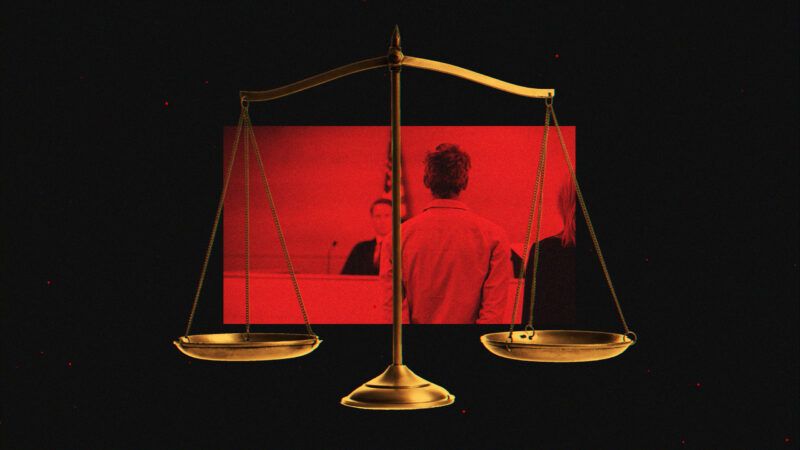A Jury Acquitted Them of Various Charges. They Served Prison Time for Them Anyway.
The Supreme Court may soon consider if acquitted conduct sentencing is illegal.

Can you do prison time for a criminal charge of which you were never convicted?
I'd venture that most would assume the answer is "no." They would be wrong.
Known as acquitted conduct sentencing, the practice allows judges to bloat a prison term when sentencing a defendant by punishing them for a separate charge or charges on which a jury deemed them not guilty.
It's attracted a wide coalition of critics across the political spectrum. And now it may be heading to the Supreme Court, which will soon decide if it will consider one such challenge to the practice that has been deemed by many to be plainly illegal.
The petition in front of the high court concerns Dayonta McClinton, who, at 17 years old, robbed a CVS Pharmacy at gunpoint to steal drugs.* The government also alleged that he shot one of his conspirators, Malik Perry, though a jury ultimately acquitted McClinton of causing Perry's death.
But the court overseeing the case disregarded that acquittal, agreeing with the government's request that McClinton should explicitly serve time for a crime that the prosecutors failed to convince a jury he committed. The sentencing guidelines for McClinton's convictions prescribed a term of 57–71 months. He instead received 228 months, or 19 years.
McClinton is not the first. Americans for Prosperity (AFP), the libertarian-conservative think tank which filed an amicus brief on behalf of McClinton, synthesized several other unlucky defendants. Those include Erick Osby, who was convicted of two drug charges but sentenced as if he was convicted of seven; Roger White, who was acquitted on firearm charges but sentenced to an additional 14 years as if he had not been; and a group of men colloquially dubbed the "Congress Park Crew" that was convicted of distributing small amounts of crack cocaine but sentenced to terms between 15 and 19 years in prison, based on charges for which the jury handed down not-guilty verdicts.
The slate of briefs before the Court in support of McClinton is diverse. In addition to AFP, it includes petitions from the libertarian Cato Institute, the bipartisan Due Process Institute, the National Association of Federal Public Defenders and Families Against Mandatory Minimums, as well as, perhaps most notably, 17 retired federal judges from various presidential appointments and divergent ideological backgrounds.
But negative backlash to this practice has, for years, crisscrossed partisan lines, drawing uneasiness from Supreme Court Justices Brett Kavanaugh and Clarence Thomas and former Justices Ruth Bader Ginsburg, Antonin Scalia, and Anthony Kennedy. The Court now has a chance to enshrine those reservations into law.*
*CORRECTION: The original version of this piece mischaracterized the crimes for which McClinton was convicted and the Supreme Court's official position on acquitted conduct sentencing.


Show Comments (59)